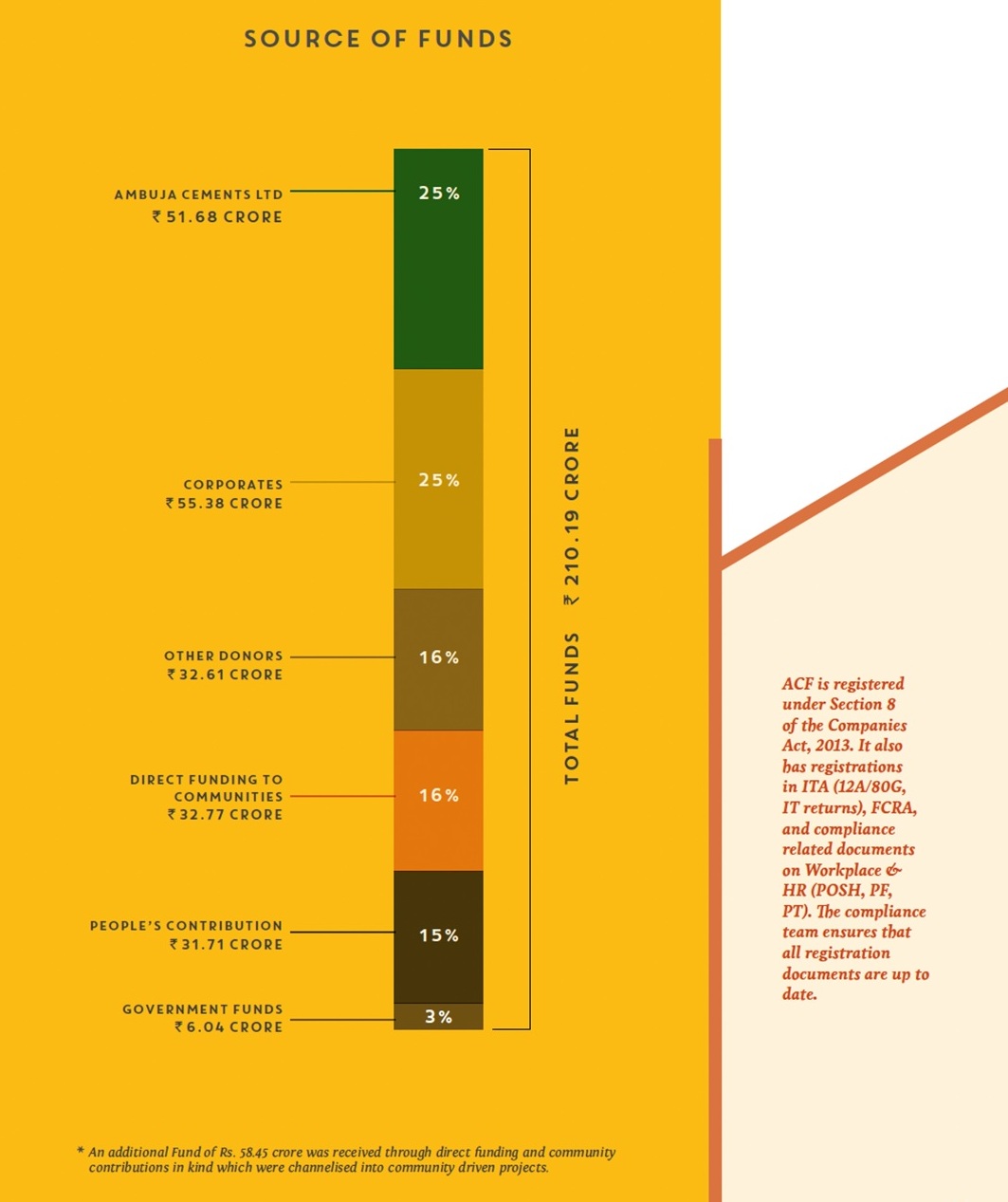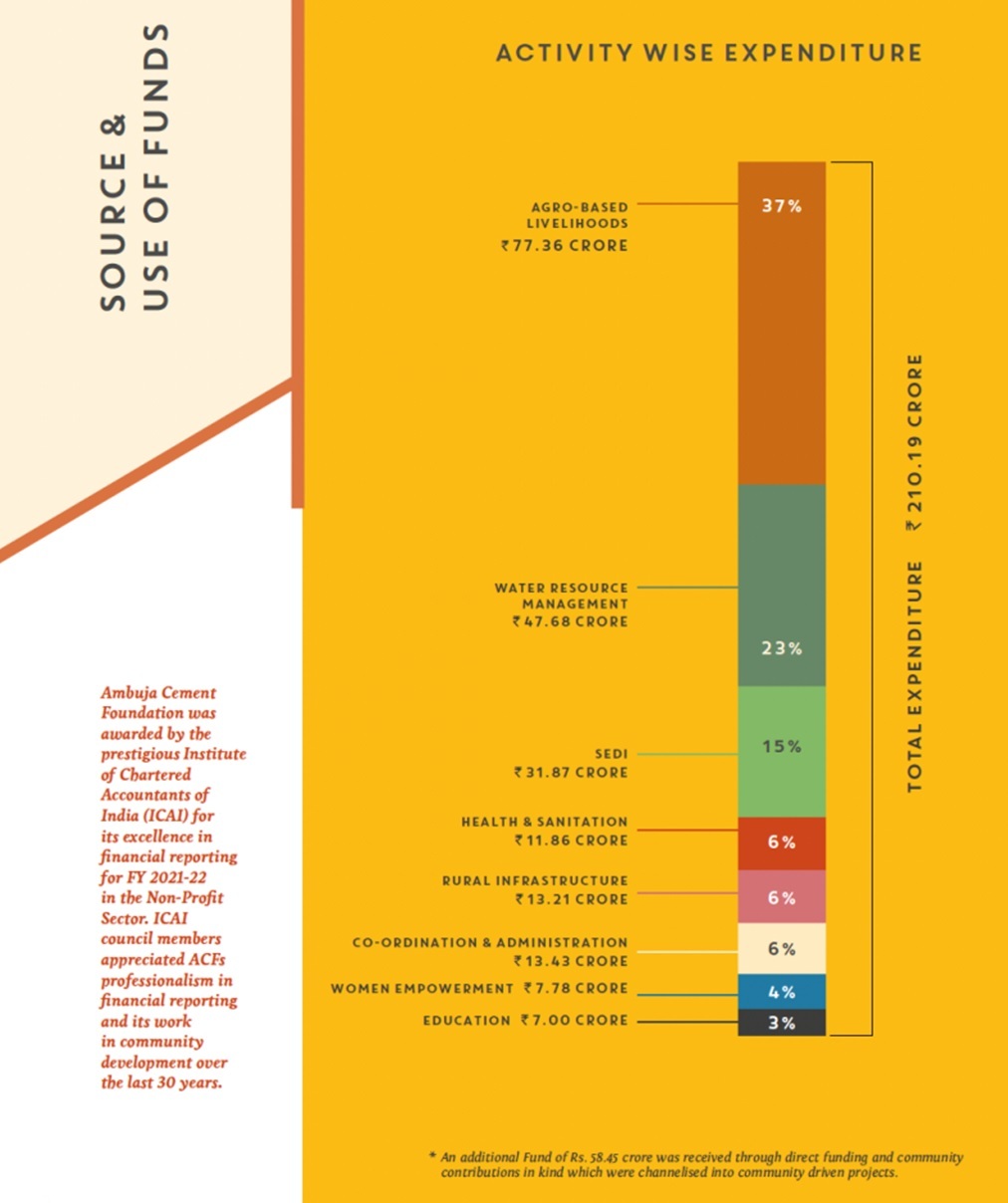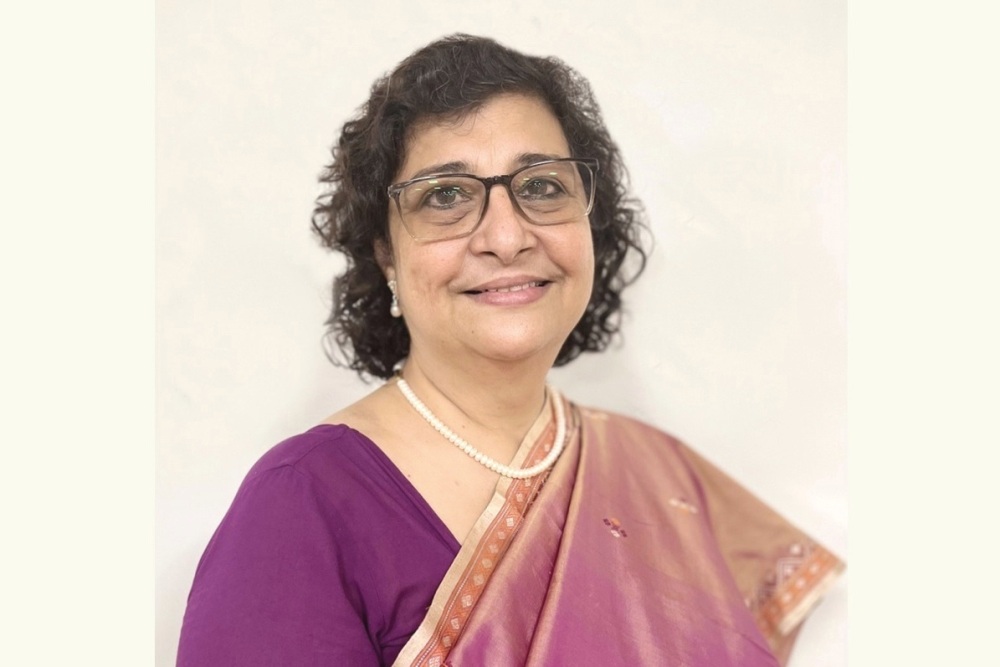One of the most important factors contributing to job creation in India has been skill development. More than 60 per cent of the country’s population comprises youngsters. This serves as a unique advantage in terms of demographics. However, employability needs to be enhanced if we want to reap the advantages of such a huge workforce.
Driven by this vital need, Ambuja Cement Foundation has been engaged in skill training to empower youth with the domain and life skills, workplace experience, and certifications that are required to get good livelihood opportunities. This helps them earn decent incomes and uplift their families. Its skills mission is to provide rural youth with training and employment opportunities that help lift them and their families out of poverty.
In this interview with TheCSRUniverse, Ms. Pearl Tiwari, Director and CEO, Ambuja Cement Foundation, discusses how their recent collaboration with Western Coalfields Ltd is impacting the skill training of underprivileged rural youth. She also shares the foundation’s plans to expand not only its number of Skill & Entrepreneurship Development Institutes (SEDI) centres across geographies to reach many more underserved rural areas, but also expand the footprint of existing centres to reach youth in remote areas.The effects are seen in economic gains but also in improvement in the social status of young individuals.
Read the full interview below to learn about the Ambuja Cement Foundation’s commitment to skill development and positive societal change:
Q&A
Q. Could you elaborate on the recent collaboration between Ambuja Foundation and Western Coalfields Ltd to implement the skill training programs? We would like to understand the scope and key components of this collaboration.
A.The collaboration between ACF and Western Coalfields will see the impact of skill training for underprivileged rural youth from the command areas of WCL in the Chandrapur district.
Western Coalfields Limited is a subsidiary of Coal India Limited, having its registered office at Coal Estate, Civil Lines, Nagpur (MS), WCL has mining operations spread over the states of Maharashtra (in Nagpur, Chandrapur &Yeotmal Districts) and Madhya Pradesh (in Betul and Chhindwara Districts). The Company is a major source of supplies of coal to the industries and electricity boards along with cement, steel, chemical, fertilizer, paper and brick Industries.
WCL having regard to its declared CSR policy is interested in taking up the project for providing vocational skill training approved by the concerned sector skill councils under the National Skill Development Corporation for 132 youths from command areas of WCL through ACF’s Skill & Entrepreneurship Development Institute with state of the art training facilities in Gadchandur, Block Korpana, District Chandrapur.
The courses proposed for this collaboration are Welder and General Duty Assistant. The course duration is of 4 to 6 months followed by facilitation of placement of a minimum of 70% of the trained candidates. Mobilization of the youth from the suggested villages of WCL will be done by ACF through its mobilisation team.
The training component includes counselling of the candidates, training on the chosen domain skill, as well as soft skill training and basic IT skills. Domain training will be conducted with 70% practical and 30% theory at SEDI.
Q. Ambuja Foundation plans to train 72 young aspirants in welding and 60 young people in the general duty assistant profile. How would this collaboration contribute to achieving this goal?
A. Having operated skill training centres for over 2 decades in India, we have found that welding skills hold great potential for local employment, and entrepreneurship and also open up opportunities in larger cities such as Nagpur, Aurangabad, and Pune.
Moreover, the majority of trainees who enrol for the General Duty Assistant (GDA) program will be women candidates aspiring to gain financial independence through employment in the healthcare sector.There is also ample potential to expand to the next phase of additional training, not only within Chandrapur but also in other districts where WCL has a presence.
Q. Can you provide a detailed overview of the Skill & Entrepreneurship Development Institutes established by Ambuja Foundation, highlighting their core offerings and impact?
A. Since the inception of our first institute in 2006, SEDI has successfully trained over 110,000 young individuals in 42 employable trades, with a placement rate of 78%. Currently, we operate 36 SEDIs across 10 states.
We started our 1st formal Skill and Entrepreneurship Development Institute (SEDI) in 2006 at Jaitaran, district Pali (Rajasthan) and subsequently inDarlaghat, district Solan (HP). The impact of these two institutes changed the dimension of our skill development programme. We have started a similar institute in all our CSR locations and by 2015 we had 17 SEDIs.
ACF’s Skill & Entrepreneurship Development Institutes (SEDI) program is one of our flagship programs. It was started with the objective of addressing the unemployment issue among the rural youth who did not have access to quality vocational training. We have set up SEDI for imparting vocational training to boys and girls in the age group of 18 to 35. We offer short-duration and intensive courses in various trades.
If we look at the impact there are many examples where the 2-3 siblings or both husband and wife from a family were trained and all of them got placement. Families come out of economic crises and the 2-3 earning members bring great prosperity into the family. SEDI graduates also provide an ‘off farm’ income into primarily agricultural households which de-risks the household in times of climate change and agricultural vulnerability.
The impact is not only seen in economic gains but also in improvement in their social status. This leads to their investment in good education for their children, and better health facilities.
Women, after training and placement, become self-sufficient and look for further development of their families.
Q. Unemployment has been a big challenge in our country. In your opinion, how are other companies progressing on this front and what more can they do to address this issue?
A. Many companies have been addressing unemployment by implementing diverse approaches such as skills training, mentorship programs, and apprenticeships. These initiatives help individuals acquire the skills needed for available jobs, improving their employability.
Corporate India has a need for very well-trained people in technical areas, motor mechanics, AC repair, etc. They need these people out there and need them to be skilled. They also need people who can market their products in the regions. They are also grappling to get people in their production lines. We have found a strong role for companies to get involved, as they have the right skill sets and thinking required and managerial abilities to help train and shape youth with the right skills to meet their needs.
We saw skilling as an alternative livelihood option and solution to the fragmentation of farms we found – i.e. in Darlaghat, farms were so fragmented and small and therefore families were struggling to survive off the income. Local Industry was also struggling due to a lack of skills among workers. We thought, why not get young people in the family to get into skilling for wage employment to hedge family incomes and de-risk them from agricultural vulnerabilities? We saw the transformative impact of this and saw first-hand how it has gone a long way to lift families out of poverty.
The issue of gender also came to the fore here – families could do with a double income, 43% of trainees in our skilling centres are women today.Many big corporates today are looking for more and more women on the shop floor, so there is vast potential.
With increased interest by corporates, we saw an opportunity to partner with other corporates as an implementation partner in skilling. Hindustan Zinc Ltd, Schneider and AU Bank are just some of the companies we have partnered with to set up Skill & Entrepreneurship Development Centres – often building relevant curricula to meet key industry needs. Companies can do more by collaborating with skilling training providers like ACF to design and implement comprehensive workforce development programs. These collaborations can facilitate the alignment of skills training with industry demands and create a more efficient labour market.
With 30 years’ experience working in grassroots rural villages across 12 states, in our experience, corporates should also focus on the following:
- Agro-based livelihood: Efforts can be made towards improving the skills of farmers by adopting better practices of cultivation which will reduce the cost of production and thus improve the profitability and sustainability of farming. The use of modern agricultural practices with an intention to reduce the use of chemicals and pesticides not only improves the ecology but also reduces the cost of production. Further, the promotion of agriculture-based enterprises will also be useful in establishing additional income sourcesfor the farming community.
- Remote Work Opportunities: The rise of remote work and the gig economy has enabled companies to tap into a broader talent pool, including individuals in underserved areas. By offering remote work options, businesses can provide job opportunities to a more diverse group of people.
Q. What are the broader youth upskilling goals for AmbujaFoundation and what are the key steps that the company plans to take in this direction in the near future?
A. With a focus on enhancing livelihoods, ACF invests heavily in the skill upgradation of farmers, women and youth.
Specifically in relation to skill training, however:
- Ensure livelihood opportunities for candidates through job placements.
- Fostering of rural entrepreneurs which do much to stimulate the rural economy
- Breaking gender stereotypes by encouraging women to enter non-traditional trades like welding and electrical, or men to join general duty assistant.
- Promoting meaningful training, employment and business opportunities for differently abled youth
- Providing sustainable career progress to aspirants through handholding and mentoring support
Ambuja Foundation aims to expand not only its number of SEDI centres across geographies to reach many more underserved rural areas, but also expand the footprint of existing centres to reach youth in remote areas.
Q. What is the budget outlay for your CSR activities in the financial year 2023-24?
A. Ambuja Foundation started as the CSR arm of Ambuja Cements Ltd, but today has grown into a significant-sized NGO in its own right, whereby 25% of funds are contributed from Ambuja Cements Ltd CSR.
As outlined in our most recent Annual Report, the source and use of funds are as follows:


Q. How does Ambuja Foundation integrate digital skills training into its vocational programs for rural youth, ensuring their adaptability to technological advancements in the industry?
A. Digital skills is a mandatory training of all our courses. We also promote the following: computer literacy, use of the internet, awareness of payment gateways for entrepreneurs, use of technology in training, use of social media for mobilisation and after-training follow-up, use of virtual platforms in training, assessment through online platforms, use of digital content for training, use of interactive boards in classrooms, learning apps, technology in psychometric assessment of trainees and soft skill assessments.
Q. How does the Foundation plan to ensure the sustainability of the skills acquired by the youth in the long term, especially considering the evolving demands of the industries they are being trained for, and how does it intend to scale its initiatives to reach a wider audience in the future?
A. Sustainability
- At SEDI we ensure training is as per the market demand
- We make regular changes/upgrades in the content based on the feedback of the employers and placement partners, which is reassessed regularly.
- We undertake trainee assessment and interaction with the help of experts from the market
- We ensure the engagement of important stakeholders in the training process
- We regularly add new courses and delete outdated courses.
- We provide up to 2 years of handholding support and follow-up after training.
- We have actively fostered the development of a network of alumni so that they can collaborate and network to upgrade the knowledge base and support one another.
- We provide engagement of mentors during and after training.
- We actively promote the adoption of lifelong training with follow-up and advanced courses.
Scaling Initiatives to reach out to a wider audience
- Use of various mobilisation tools to reach out to the community through the promotion of mouthpieces and local champions in the community
- Use of social media to publish the impact stories of trainees
- Involvement of key stakeholders including government officials, industrial associations, experts, consultants, community leaders, influential personalities, youth icons, media both electronics and print in training and publishing our efforts to a wider community.
- Creating visibility through branding, advertising, press releases, and participation in exhibitions, events and seminars.
- Nomination for awards, recognitions and pubic events.
- Regular updates of websites and social media presence.




















.jpg)



